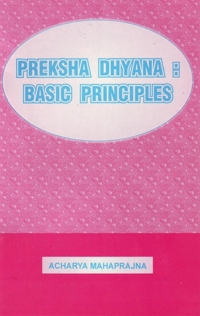Spiritual vigilance, i.e. awakening of the consciousness and its constant alertness is an essential constituent of meditation. Only he who is alert can be vigilant: only he who is vigilant can concentrate and only he who is able to concentrate can practise meditation. One who is not vigilant is prone to be assailed by fear from all directions. On the other hand, one who is alert, and hence fully vigilant, is never perturbed by fear.
An alert mind never burdens itself with unnecessary memories of what is done. Man is habitually bothered more by the memories of the past actions rather than the work hand. For instance, when he takes his meals, instead of concentrating on eating, his mind is agitated with umpteen other, mostly irrelevant, memories and/or plans. He who keeps his mind fully enagaged by whatever is being done at the moment, is the true sãdhaka. Complete harmony of body, mind and speech is indeed very rarely achieved. And where there is no harmony between the body and the mind, the result is agitation, tension and restlessness. In fact, real sãdhaka comprises total harmony of thought and deed—call it concentration, meditation or whatever you like.
Meditation does not mean suppression of mental function. Any attempt towards its suppression makes the mind more restless. The question then arises, what to do to achieve concentration? The answer is simply—'See yourself; perceive yourself and realise the Self.
As already stated, breath is an essential constituent of the self. Realizing breath is a step towards realizing the self. And so he who realizes his breath is a wise man. He may not be a scholar but he knows his self, and is, therefore, wise.
Normally one pays no attention—makes no efforts to breathe. Nevertheless breathing does not stop. Proper breathing is very important. He who is indifferent to how he breathes is ignoring his own self. Breathing, internal breathing, sense-organs, body and mind are all qualified to become objects of concentrated perception, without which peace of mind cannot be achieved.
Today we live in a world of mental tensions. Even routine chores like buying one's necessities from a ration shop or commuting by public transport in a crowded city, produces enormous dangerous tensions. The question is - what is the remedy? How to avoid the injurious effects of the daily stress? Modern life-styles are unlikely to change for the better. We must therefore find the remedy within our own selves. Fortunately we do possess an innate protective mechanism - tropotrophic or relaxation response—which when triggerred can produce conditions diametrically opposite to those of stress. Regular practice of 'easy-to-learn meditational technique' is a potent remedy for relieving mental stress and achieving peace of mind. It can also prevent the onslaught of dangerous psychosomatic diseases.
Prekṣã Dhyãna is such an uncomplicated, easy-to-learn technique of meditation. It is comprised of the following:
- Kãyotsarga (Total Relaxation)
- Antaryãtrã (Internal Trip)
- Švãsa-Prekṣã (Perception of Breath)
- Šarīra-Prekṣã (Perception of Body)
- Caitanya-Kendra-Prekṣã (Perception of Psychic Centres)
- Lešya-dhyãna (Perception of Psychic Spectrum)
- Perception of the Present Moment
- Perception of thoughts
- Self-Discipline
- Bhãvanã (Counter-vibrations)
- Anuprekṣã (Contemplation)
- Concentration
 Acharya Mahaprajna
Acharya Mahaprajna

